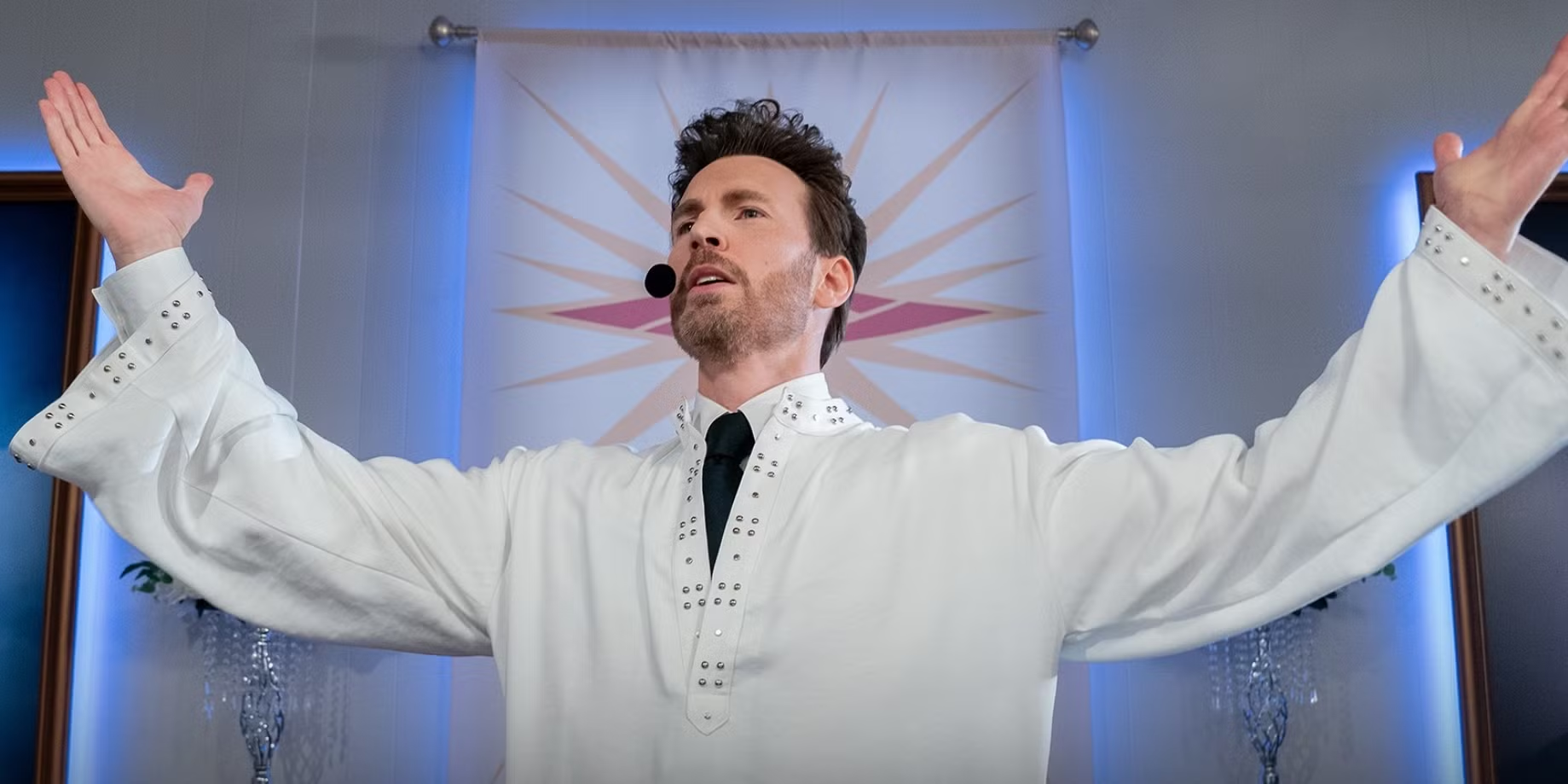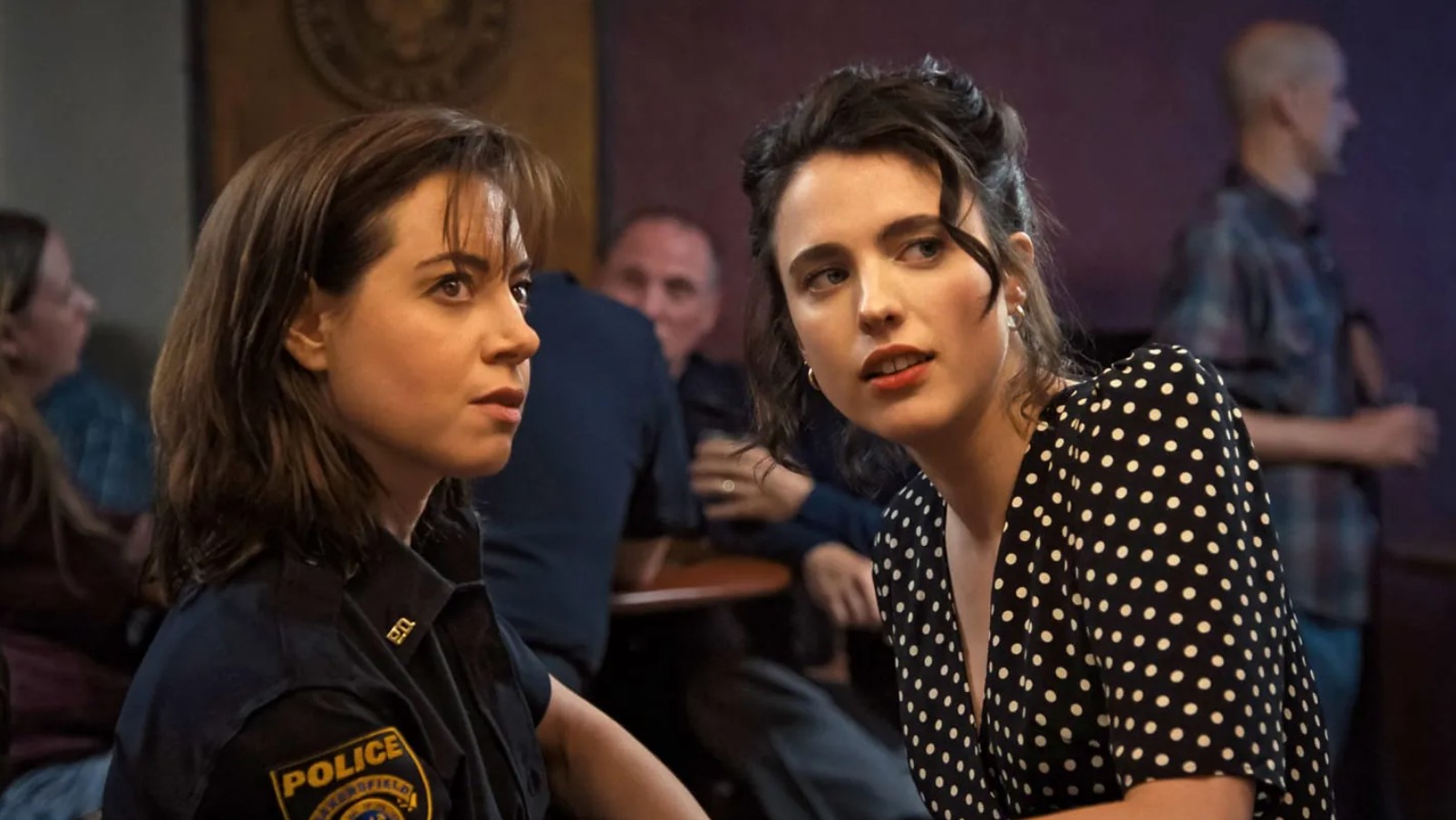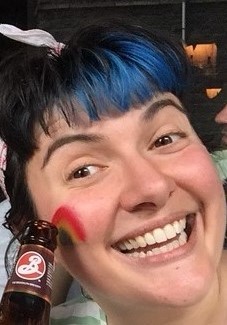When I heard that Honey, Don’t, the second movie in Ethan Cohen’s lesbian trilogy, would star Aubrey Plaza, along with returning star Margaret Qualley, I was very keen to check it out. The first instalment, Drive Away Dolls, which was released last year, was a madcap road trip queer buddy movie where the two buddies end up falling in love. Honey, Don’t does have comedic elements, but these are more dark than slapstick.
Qualley plays Honey, a stoic, local, small-town investigator who dresses immaculately in tailor-made 50s-inspired outfits and never has a hair out of place. A number of people have been mysteriously killed in her small town, and she believes that it could be connected to the seedy mega-church run by Reverend Drew Devlin (Chris Evans). When her teenage niece, Corinne (Talia Ryder), goes missing, Honey, with the help of the local police (Plaza and Charlie Day), cruises around Bakersfield, California, in her 1972 Chevelle SS convertible, trying to piece together exactly who is responsible.
Bakersfield, where the movie is set, is based on a real town in California that has been called “racially divided.” Writers Ethan Cohen and Tricia Cooke use this to their advantage by including two very different worlds in the film. One is that of Honey herself, who, in her queerness and logical approach, is the stable core of the film. A good choice by Cohen and Cooke as Plaza and Evan’s characters are quite confronting.
Evan’s portrayal of the kooky and disturbing Reverend Drew Devlin is stunning, with his creepy side smile and weird way of connecting his holy status with his drug trafficking side hustle and love of BDSM. In a stand-out scene, Evans preaches to his flock about the dangers of being a “piece of macaroni”, which does “nothing.” Evan’s Devlin highlights how the powerful can get away with anything they like if they know how to spin it right.

Aubrey Plaza plays a very different role from her usual charismatic, sarcastic, black cat persona. In Honey, Don’t, Plaza, who plays police officer MG Falcone, is downtrodden, barely smiles and wears no make-up. Honey is attracted to this raw energy, and they begin a sexual affair. The chemistry between the two, especially in a steamy, kinky scene at a bar where Honey states they should “leave…before we get arrested”, is hot to witness.
Other performances of note are Talia Ryder as Corinne, Honey’s sassy runway niece who helps build some of the tension in the film through her abusive relationship with her MAGA boyfriend. Unfortunately, Charlie Day’s character, the police officer Marty Metakawitch, is creepy and unnecessary. He is constantly hitting on Honey, even when she continuously tells him that she “likes girls”, to which he quickly laughs off. There is a similar moment in Drive Away Dolls, and I’m wondering if this is a commentary on how mainstream society only validates heterosexual relationships.
“…they really should have focused on the quality and not the quantity of this queer representation.”
Though the casting is top-notch, the script and plot of Honey, Don’t are a mess. It crams so many ideas and characters into its hour-and-a-half running time that most are not fully formed or concluded. As the credits were rolling, I was left confused and wondered what the whole point Cohen and Cooke were trying to make.
This is Ethan Cohen’s third movie without his brother, Joel, a collaborative team that has produced some of the best indie movies in the 90s/00s. However, since cutting creative ties with his brother, his movies have not been well-received. He does love a creative partner, though, and in Honey, Don’t, that new partner is in the form of an ex-partner, his ex-wife, Tricia Cooke. Cooke identifies as a lesbian, and that is why there is obvious queerness in Honey, Don’t. Though Cooke has stated that she and Cohen wanted to “fill the movie with as much queerness as possible”, they really should have focused on the quality and not the quantity of this queer representation.
A lot of these queer scenes, especially the sex scenes, felt like they were made primarily for a male audience. There is an aggression to Honey, Don’t, in the way the men are portrayed. They are all misinformed, ignorant and useless, unable to properly complete a task and easily thrown down by a strong woman. These men, though they are ridiculed for their problematic masculinity, also have the power of the male gaze, which is constantly thrown onto Honey. This may be a commentary on the way women are constantly being watched and critiqued by men, something that Queer women are very aware of. Therefore, though Honey, Don’t claims to be filled with “queerness”, it’s actually a watered-down heterosexual representation of what it is to be queer.

Honey, Don’t had potential to be a queer cult classic, especially with this stunning cast attached. Unfortunately, what is served to audiences is a disjointed plot, scattered script and a weird portrayal of queerness that constantly reverts back to the male gaze. I know a lot of my queer friends are excited to see Plaza and Qualley play lovers (I was very much one of them), but I don’t believe they will gain anything new about what it is or what it looks like to be queer from this poorly written jumble of a film.
Honey, Don’t is in cinemas now.
—
Checkpoint Gaming attended a screening of Honey, Don’t as a guest of Universal Pictures Australia.





